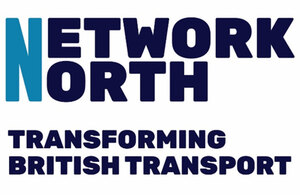Yorkshire and the Humber to benefit from £19.8 billion transport investment
Multibillion-pound plan to link major cities in the North via bus, rail and new and improved roads.

- government to redirect vast HS2 savings into unprecedented transport investment across the country, benefiting more people, in more places, more quickly
- the North will receive £19.8 billion to link its major cities – with more than £2 billion for a brand-new rail station at Bradford, halving journey times to Manchester
- funding of £2.5 billion will ensure delivery of a West Yorkshire Mass Transit System for Leeds and the wider area, providing better connections to Bradford and Wakefield
Yorkshire and the Humber will benefit from new stations, more frequent trains and funding for a Mass Transit System in a major funding boost to create stronger public transport networks.
A total of £36 billion in savings from HS2 will be reinvested in hundreds of transport projects across the country, delivering more buses, reopening railway stations and ensuring major funding for new and improved roads.
Today (4 October 2023), we have announced the Network North plan, which will still see HS2 delivered between Birmingham and Euston in central London.
But every penny that would have been spent extending the route will instead be redirected into roads, rail and buses to drive economic growth and provide jobs.
Network North will build better connectivity across the North and Midlands with faster journey times, increased capacity and more frequent, reliable services.
It will include a fully electrified and accelerated network between the major Northern cities – boosting services and transforming the region’s transport infrastructure.
In Bradford, more than £2 billion in funding will ensure the delivery of a brand-new rail station, supplying a new fast 30-minute link to Manchester via Huddersfield instead of the existing 57-minute journey.
Capacity and frequency of service will be doubled, providing an extra 1,000 seats per hour.
And services between Bradford – the UK’s seventh-biggest city – and York could also be cut from 49 minutes to 33 minutes.
Further benefits for Yorkshire and Humber will include:
- a fully funded £2.5 billion West Yorkshire mass-transit system, giving the region better connections to Bradford and Wakefield. Leeds will no be longer the biggest European city without a mass-transit system, with up to 7 lines potentially created as part of a transformed network, eventually linking Leeds to Bradford, Halifax, Huddersfield and Wakefield – all in operation before HS2 would have reached the region
- Hull will also be brought into the Northern Powerhouse Rail network, reducing journey time from Leeds from 58 minutes to just 48. The number of trains between Hull and Sheffield will be doubled, to 2 per hour, with capacity also doubled. Journeys from Hull to Manchester will drop from 115 to 84 minutes, enabling 2 fast trains to Leeds
- the line between Sheffield and Leeds will be electrified and upgraded, giving passengers a choice of 3 to 4 fast trains an hour, instead of 1, with journey times of 40 minutes. A new mainline station for Rotherham will also be added to the route, which could give the town its first direct service to London since the 1980s, boosting capacity by 300%
- the Hope Valley Line between Manchester and Sheffield will also be electrified and upgraded, with the aim of cutting journey times from 51 to 42 minutes and increasing the number of fast trains on the route from 2 to 3 per hour, doubling capacity
- communities will be reconnected through the reopening of lines and stations closed under the Beeching reforms of the 1960s. This will include the restoration of the Don Valley Line between Stocksbridge and Sheffield Victoria, and new stations at Haxby Station, near York, Waverley, near Rotherham, and the Don Valley Line from Sheffield to Stocksbridge
- £100 million will be shared across the North and Midlands to support the development and rollout of London-style contactless and smart ticketing, supporting seamless travel by enabling contactless or smartcard payment
- nearly £4 billion through City Region Sustainable Transport Settlements (CRSTS) to ensure all 6 Northern city regions will receive more than double their CRSTS1 funding to improve connectivity in their areas, which could pay for schemes such as bus rapid transit corridors in Bradford and Leeds
- £1.4 billion for South Yorkshire, including £500 million from savings from HS2 and the CRSTS.
- £2.1 billion for West Yorkshire, including £800 from savings from HS2. This includes a £500 million downpayment for the West Yorkshire Mass Transit
- a brand-new £2.5 billion fund to transform local transport in 14 rural counties, smaller cities, and towns outside the big city regions. A brand-new £2.5 billion fund to transform local transport in every part of the North outside the mayoral combined authority areas –rural counties, smaller cities and towns. This new money could finance projects like more electric buses in Harrogate and better bus-rail interchange in Scarborough
- a total of £460 million will ensure the delivery of smaller road schemes across the North like the Shipley Eastern Bypass, near Bradford, while a £1 billion roads package in the North could support new schemes like the A1-A19 Hickleton Bypass in Doncaster, easing pressure on traffic
- a £3.3 billion long-term road resurfacing fund for North alone will combat the potholes causing misery for drivers
- the popular £2 bus fare will also be extended until the end of December 2024 instead of rising to £2.50 as planned and a £700 million bus funding package in the North will see more buses and more frequent routes, with more buses to industrial estates and business parks
Read how HS2 funding is being redirected across the country
- North West
- North East
- East Midlands
- West Midlands
- East of England
- South East
- South West
- Wales
- Scotland
News desk enquiries
Media enquiries 0300 7777 878
Switchboard 0300 330 3000